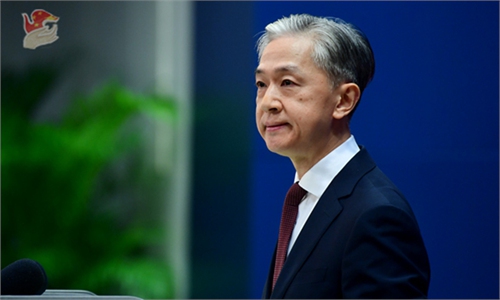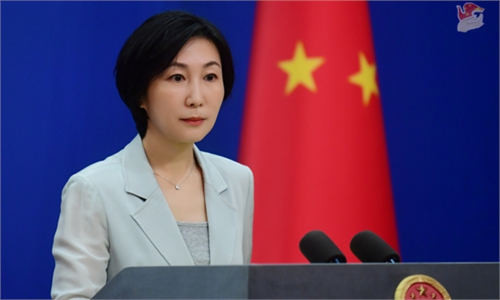Foreign diplomats in China refute ‘debt trap’ hype by Western media
Infrastructure projects under BRI help promote economic growth
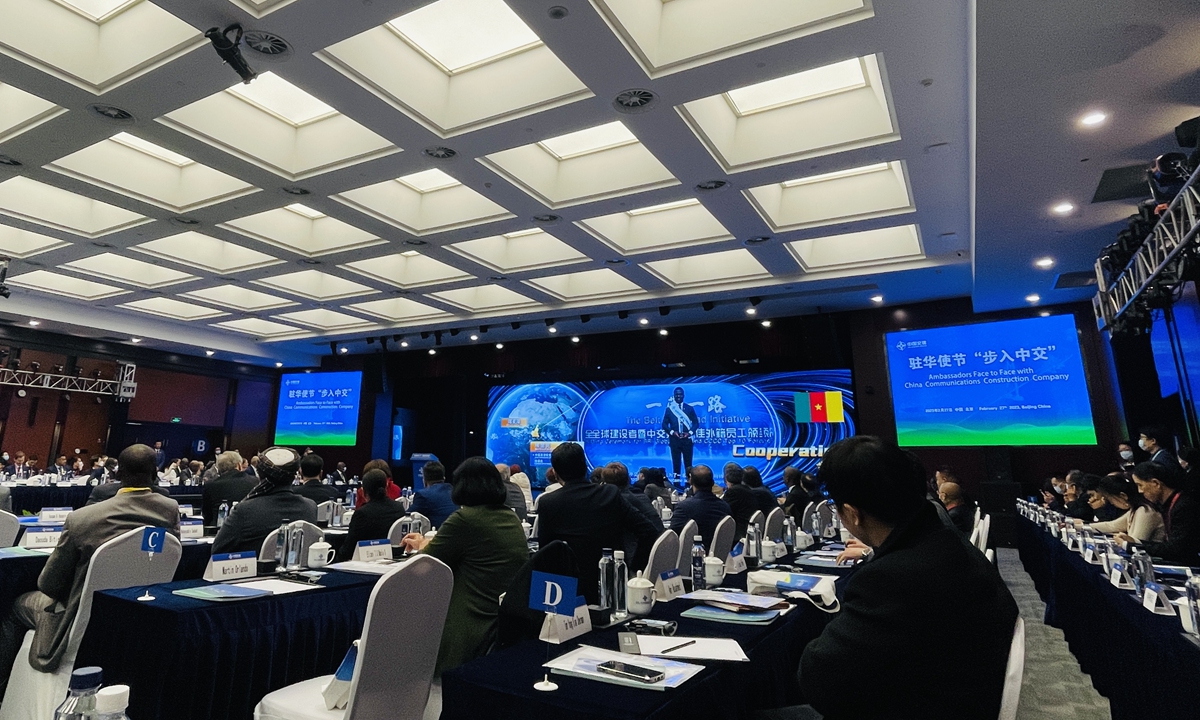
Photo: Chi Jingyi/GT
Foreign diplomats refuted the "debt trap" hyped by some Western media on Chinese overseas projects, asserting those infrastructure projects have improved local livelihoods, created jobs and promoted local economic development.Western media hyping the "debt trap" of Chinese projects is "fake news," Moin ul Haque, Ambassador of Pakistan to China, told the Global Times on Monday. "We don't subscribe to such a characterization of China-Pakistan cooperation, which is based on our mutual support and respect and win-win," said Haque.
The interview was conducted during a group visit to China Communications Construction Group (CCCC), one of the major Chinese companies that participates in the China-proposed Belt and Road Initiative (BRI). The group visit gathered 111 diplomats from embassies and international organizations in China.
Haque noted that BRI and China-Pakistan Economic Corridor projects have greatly contributed to changing the economic landscape in Pakistan in infrastructure development and industrialization.
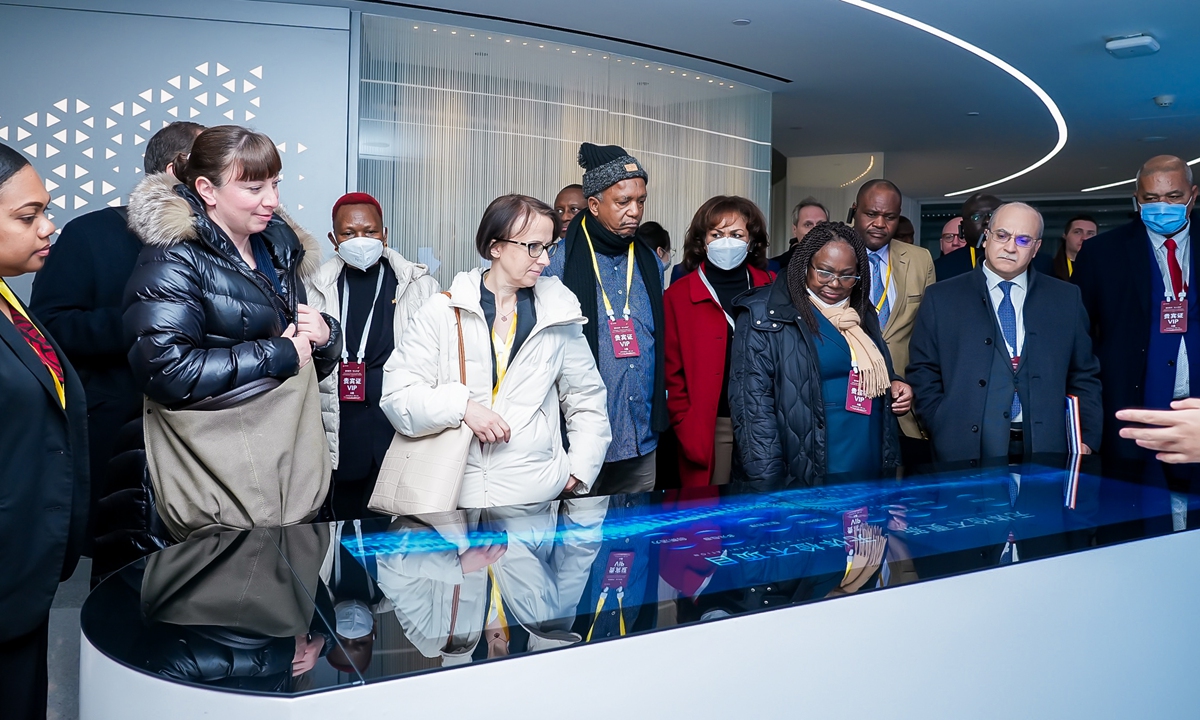
Photo: Courtesy of China Communications Construction Group
Asked about his opinion on Western reports saying China's projects brought "debt traps" to host countries, Siyabonga C. Cwele, South African Ambassador to China, told the Global Times that "we don't see it that way. We see it as a win-win situation with China, and with mutual respect."Cwele said that the construction of infrastructure projects has to go through public tendering and transparent procurement process in South Africa, and they have stringent requirements.
"Chinese companies tend to be better in project execution in our view, because they come with their financing, skills and innovation, so they tend to complete their projects on time. What causes debt problems is that projects are not completed on time," said Cwele.
He took two power plants under construction in South Africa as an example - projects that weren't undertaken by Chinese companies. "Those projects had a lot of problems and cost escalations. That's what caused problems, because that's where debt starts."
Speaking about the so-called "debt trap", K. K. Yoganaadan, deputy chief of the mission of the Sri Lankan Embassy in China, said: "actually, this is a term that I don't know who invented. Some interested groups use the term for their own propaganda."
"If you take Sri Lanka's total debts, only 10 percent is owed to China and 90 percent of our debts are owed to other bilateral partners and multilateral agencies," Yoganaadan told the Global Times.
Yoganaadan noted that China is already helping and supporting Sri Lanka in resolving its debt problem, which is appreciated.
"We are very confident and hopeful that these BRI projects will help us improve Sri Lanka's foreign exchange income and attract more foreign investors," said Yoganaadan.
"The 'debt trap' is not a problem caused by Chinese companies. Solving the debt problem is a process that needs to be negotiated by everyone," Chen Zhong, vice general manager of CCCC, told the Global Times on Monday.
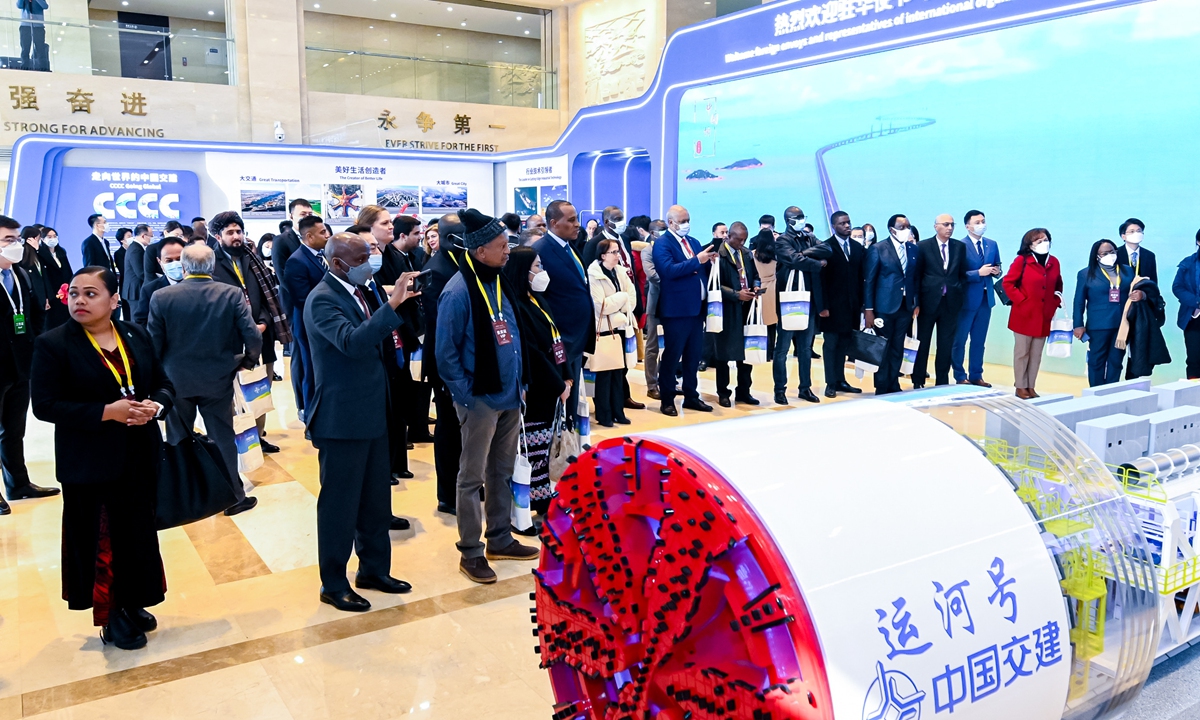
Photo: Courtesy of China Communications Construction Group
China's Foreign Ministry said on Monday that China attaches importance to the debt issue of developing countries and has made positive contributions to easing their debt burdens and promoting sustainable development, in response to the solution of Zambia's debt problem.Commercial creditors and multilateral financial institutions, which mostly are from the West, account for 70 percent of Zambia's external debt, according to figures disclosed by Zambia's Ministry of Finance.
"They should shoulder their responsibilities and take stronger action to ease Zambia's debt burden," said Mao Ning, a spokesperson of the Foreign Ministry, said on Monday.
Diplomats on Monday also said that, apart from current cooperation with China, mostly under the BRI, there is huge room for further cooperation.
According to Pakistani Ambassador to China Haque, in the coming years, the focus will be on industrialization in export-oriented sectors such as automobiles, engineering, goods, mining, petroleum and agricultural modernization.
"China is now a leading country and we are focusing on cooperation in technology innovation like artificial intelligence," said Haque.
South African Ambassador Cwele said that the country is most concerned about infrastructure and green development.
"Cooperating with Chinese companies in the field of green development is going to be good," he said.
According to Cwele, South Africa accounts for about 40 percent of Africa's industrial output, and it requires modernization and new technologies.
"The key is digitizing our economy. That's where we hope cooperation with China and Chinese companies will bring win-win results for our people," said Cwele.
As for Ali Obaid Al Dhaheri, Ambassador of the United Arab Emirates to China, "areas of science and technology development" will be a direction of future cooperation.
"We pay a lot of attention on advancing ... the digital economy and in China, you are highly developed in this area. Based on this, I have no doubt it will be a great opportunity to cooperate in the area of technology sharing," Dhaheri told the Global Times on Monday.
